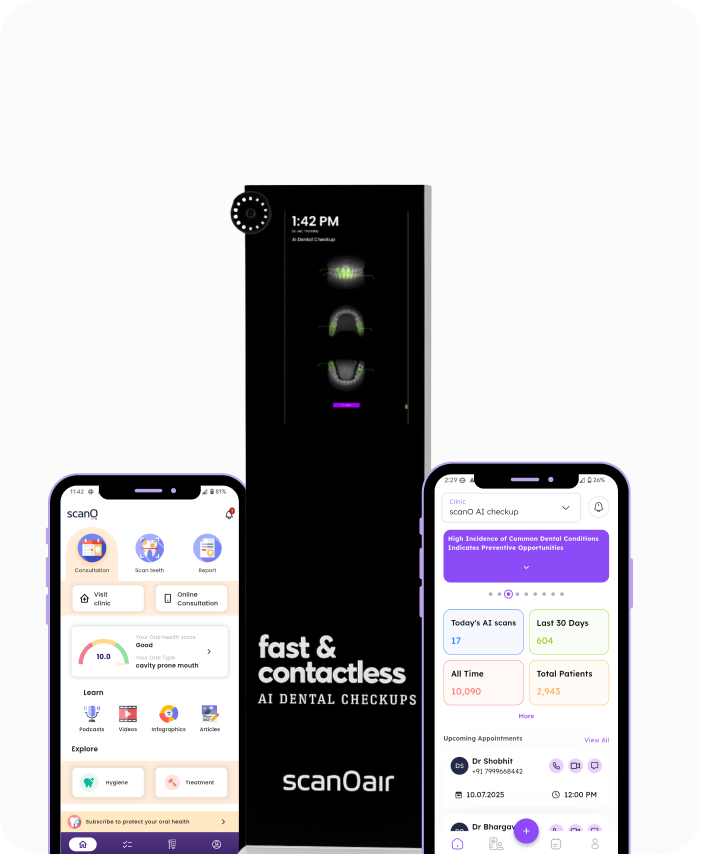.svg)
billion people suffer from
untreated oral diseases
.svg)
of dental capacity is left
unused every year
.svg)
of adults skip regular dental
checkups
A connected suite of AI-powered solutions that make oral health accessible, preventive, and personalized.

scans completed

clinics in 6 countries

oral conditions detected with AI accuracy of 96%
scanO air has completely revolutionized the way I provide care for my patients. The AI accuracy is unmatched.

From diagnosing cavities to tracking oral health, scanO air is a game-changer for my practise!”

Great app features like instant report which is easy to understand for any age group individual.

Finally, an oral care solution that’s simple, effective, and tailored just for me! scanO app helps me stay on top of my oral health.
.jpg)
scanO air has completely revolutionized the way I provide care for my patients. The AI accuracy is unmatched.

From diagnosing cavities to tracking oral health, scanO air is a game-changer for my practise!”

Great app features like instant report which is easy to understand for any age group individual.

Patients and doctors — connected through one AI ecosystem.

scanO is an AI ecosystem transforming oral health for patients, dentists, corporates, and insurers worldwide

© 2025 Trismus Healthcare Technologies Pvt Ltd